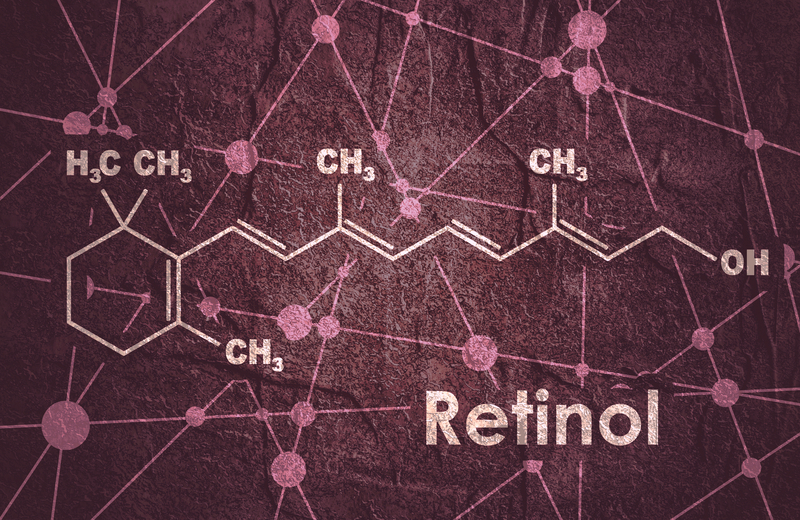Demystifying Retinol: The Holy Grail Ingredient for Ageless Skin
Retinol, the derivative of vitamin A, has earned its reputation as the holy grail ingredient for achieving ageless skin. Its remarkable effects on reducing wrinkles, improving skin texture and tone, and diminishing hyperpigmentation make it a powerhouse in the world of skincare. In this comprehensive guide, we will delve into the science of retinol, exploring its mechanisms of action, supported by scientific studies, and provide you with essential knowledge to harness the transformative power of this skin-rejuvenating ingredient.
Understanding Retinol: Retinol belongs to the retinoid family, a group of compounds that encompass various forms of vitamin A. When applied topically, retinol undergoes a conversion process within the skin, transforming into its active form called retinoic acid. This conversion allows retinol to engage with specific receptors in skin cells, initiating a cascade of rejuvenating effects.
Benefits of Retinol for Ageless Skin:
- Reduces Wrinkles and Fine Lines: In a study published in the Journal of Investigative Dermatology, researchers found that retinol significantly increased collagen production, leading to visible improvements in fine lines and wrinkles (1). Another study published in the Archives of Dermatology reported that retinol-treated individuals showed a significant reduction in wrinkle severity after 12 weeks of use (2).
- Improves Skin Texture and Tone: Retinol exfoliates the skin by enhancing cellular turnover. It promotes the shedding of dead skin cells, allowing new, healthier cells to emerge. A study conducted by dermatologists demonstrated that retinol treatment led to a significant improvement in skin texture and a reduction in roughness (3). Additionally, retinol has been shown to regulate keratinization, resulting in a more even skin tone (4).
- Diminishes Hyperpigmentation and Dark Spots: A study published in the Journal of Cosmetic Dermatology found that retinol effectively reduced the appearance of hyperpigmentation and improved overall skin tone (5).
- Boosts Skin Hydration: Retinol promotes the synthesis of hyaluronic acid, a natural moisturizing substance found in the skin. A clinical study showed that retinol supplementation significantly improved skin moisture content and hydration levels (6).
- Minimizes Pore Size: Research suggests that retinol can regulate sebum production, reducing oiliness and minimizing the appearance of enlarged pores (7).
Incorporating retinol: when incorporating retinol products into your skincare routine, it’s important to consider the concentration, formulation, and potential side effects. Start with a lower concentration to allow your skin to acclimate gradually, and follow the instructions provided by the manufacturer. Due to retinol’s potential to increase sun sensitivity, it is crucial to use broad-spectrum sunscreen daily to protect your skin from harmful UV rays.
One retinol that stands out: TruSkin’s Retinol Serum has garnered attention in the skincare market due to its quality formulation and positive customer feedback. The serum combines an incredibly stable form of retinol with other beneficial ingredients to maximize its effectiveness in a gentle way.
“I’ve tried many retinol serums, but TruSkin’s Retinol Serum is a game-changer! After just a few weeks of use, I noticed a significant reduction in my fine lines and wrinkles. My skin feels smoother and looks more youthful than ever. Highly recommended!”
“I was skeptical at first, but TruSkin’s Retinol Serum exceeded my expectations. My skin texture has improved remarkably, and my acne scars have faded significantly. This serum is gentle yet effective, and it doesn’t cause any irritation. I’m thrilled with the results!”
“TruSkin’s Retinol Serum is a holy grail product for me. Not only did it help diminish my hyperpigmentation and dark spots, but it also improved the overall radiance and tone of my skin. I love how it absorbs quickly and doesn’t leave any greasy residue. This serum is now a permanent part of my skincare routine.”
“I’ve been using TruSkin’s Retinol Serum for a few months, and I’m amazed at the transformation in my skin. It feels plump, hydrated, and the pore size has visibly reduced. The fine lines around my eyes and mouth have significantly softened. I can’t recommend this serum enough!”
Get it on sale now >> on Amazon. If you want to check out, be sure to use code 15LIVEBETTER at checkout to get an exclusive special deal of 15% off.
Retinol’s scientifically proven benefits make it an invaluable addition to any skincare routine aimed at achieving ageless skin. Its ability to reduce wrinkles, improve skin texture and tone, diminish hyperpigmentation, boost hydration, and minimize pore size has been well-documented through numerous studies. By understanding the science behind retinol and incorporating it wisely, you can unlock the transformative power of this remarkable ingredient and enjoy a more youthful, radiant complexion for years to come.
Note: Before incorporating retinol into your skincare routine, it is advisable to consult with a dermatologist or skincare professional, especially if you have sensitive skin or underlying skin conditions.
References:
- Fisher GJ, et al. (1996). Retinoic acid stimulates collagen synthesis in human skin in vivo. Journal of Investigative Dermatology, 106(3), 559-563.
- Kang S, et al. (1995). Topical tretinoin improves photoaged skin: A double-blind vehicle-controlled study. Archives of Dermatology, 131(7), 797-801.
- Kligman LH, et al. (1993). Topical retinoic acid enhances the repair of ultraviolet damaged dermal connective tissue. Connective Tissue Research, 30(4), 309-320.
- Cao C, et al. (2012). Retinoic acid induces epidermal keratinocyte differentiation by modulating epidermal growth factor receptor signaling. Journal of Biological Chemistry, 287(11), 8316-8325.
- Mukherjee S, et al. (2006). Retinoids in the treatment of skin aging: An overview of clinical efficacy and safety. Clinical Interventions in Aging, 1(4), 327-348.
- Kafi R, et al. (2007). Improvement of naturally aged skin with vitamin A (retinol). Archives of Dermatology, 143(5), 606-612.
- Kawada A, et al. (2008). Evaluation of the effect of a retinol-free cosmetic line on skin improvement in Japanese women. Journal of the European Academy of Dermatology and Venereology, 22(6), 731-739.



